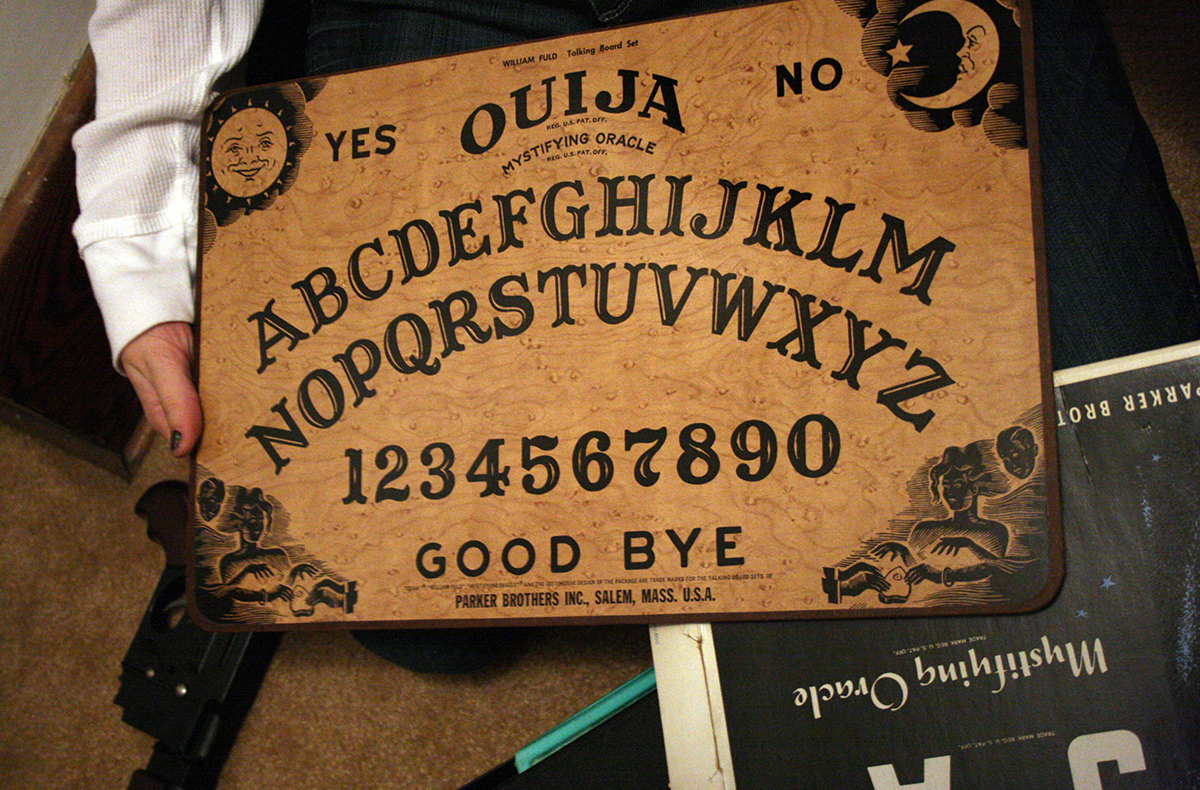Ouija Board Expert Is More Afraid of the Red Line Than Ghosts

Ouija board photo uploaded by jmawork on Flickr
Robert Murch has been studying and playing with Ouija boards for 20 years, and although he has never personally had an experience that makes him believe that the afterlife exists, his fascination about the history of the boards, or what they represent, has never faltered.
“The interesting part is in today’s world, in such a digital age, the Ouija board is still so popular,” he said. “What stands out in my mind is, I wonder if the people who first created the board would have ever thought we would still be talking about them a century later.”
On Wednesday night, Murch will team up with author Jeff Belanger, in Salem, to talk to 200 people about the “mystery” behind the 125-year-old board, and how it’s evolved since it was introduced to the world. The event will be followed up by a super-natural experiment, where attendees will use one of the many Ouijas set up at the venue to try and reach out to people from a past life.
How did you even get into this?
I was in a quad—I had three roommates in college. I had three roommates that wanted to rush for a fraternity and I didn’t want to do that. I decided they could go to rush, and I could go to parties but still be able to study. What happened was, one of the things when they were rushing was a treasure hunt, and they had to find an old Ouija board, and I had been antiquing with my dad and I realized I had 10 different boards. I thought there was only one Ouija board. So I went to the library, opened an Encyclopedia—most people don’t know what that is anymore—and when I looked up Ouija, in every single one, whether it was Britannica or whatever, they had a different answer about where it came from. I thought, this is ridiculous, how come we don’t know where it’s from? That set me off into a 20-year odyssey of figuring out, tracking down, and uncovering who was involved in the inception of the Ouija board and who brought it to market, and tracking down those descendants to tell the story.
What are you going to be doing tonight?
We’re going to take people through Ouija history, where it came from and how it got started, get it to today, and why we think what we think about it. And when we are done with that we will have experiments where people can test psychic abilities, and try and get in contact with something—whether that’s something else in the afterlife, or their subconscious.
Will there be a bunch of boards set up at the venue?
Yes. We will have a bunch of boards set up, including old boards to show people what the boards looked like before—Winning Moves is putting on the event—and we are going to have around 100 boards that we are giving away.
So people will be using them to maybe contact the dead?
Exactly, people will be using them. There’s a 200-person limit, and we are going to have—we will pair everyone up—and have them doing [interactive] stuff.
You think anything will be “summoned,” or people will make contact?
They always do. Scientists say it’s something called “ideomotor response,” or they are talking to their subconscious and they don’t know it. But the other fun thing about the Ouija board is some critics will say you’re opening up a portal, and it’s something you can’t shut. The truth is, whatever you’re opening is inside of you. The board is just the tool to explore the subconscious, or the other side. It could likely be Tarot cards—but the Ouija has 125 years of history behind it, and the boards, out of all devices created for spirit communication, Ouija is today the modern equivalent of the most popular one, and these stories have been passed down—and they’re pretty powerful.
What are your theories on the boards’ powers, as an expert in the field?
I think that if you can make contact with the other side, why wouldn’t the boards work? The real question, though, is there another side? It’s why Ouija boards are so popular, even after 125 years. People want to believe, and that’s the whole thing. The mystery, it will never be solved, because we will never know.
Do you think there’s an afterlife?
I want to believe, just like everyone else. I haven’t had an experience with a Ouija board or otherwise that has made me fall either way. This is a lifetime question for every person, and the unique thing about the board is that when you sit at it and make contact, you are admitting that there’s going to come a time when you’re on the other side. It just represents so much about mortality, and how much we don’t want to die.
After all of these years, you’re not spooked out?
I am way more afraid of people than I am Ouija boards. I live in Boston, I take the Red Line. I know what to truly be afraid of.


